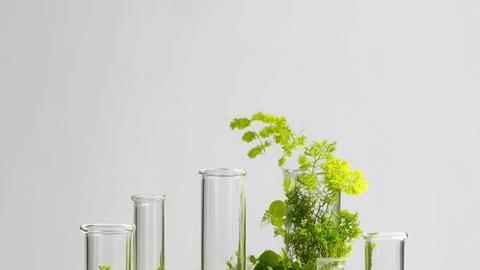NHL Stenden University of Applied Sciences has launched a new Bachelor’s degree in Green Chemistry to train eco-conscious chemists.
How can young chemists be best prepared for a field that increasingly demands innovative, sustainable solutions? NHL Stenden University of Applied Sciences has developed a brand-new programme that focuses entirely on green chemistry. While many chemistry programmes cover related topics, the university in Emmen felt it could do more. ‘The entire chemistry sector is undergoing an incredibly important transition, leading to a completely different way of working and new rules’, says Fitrilia Silvianti, coordinator of the new Green Chemistry Bachelor’s programme. ‘As an educational institution, we need to respond to this so that we can produce professionals who can really contribute to societal transitions.’
No coincidence
According to Silvianti, it is no coincidence that this programme is being developed in Emmen. ‘The university and the municipality are working hard on the new Greenwise Campus. This will be a place where vocational and higher professional education institutions, researchers and companies collaborate on smart and green projects that promote sustainability.’ Moreover, there is high demand in the region for chemists who understand circularity. ‘We are dealing with a significant population decline here, so there are far fewer students and therefore fewer potential employees’, says Silvianti. They also hope that this new bachelor’s programme will attract international students. ‘And, of course, we hope that they will stay here to work.’
The programme aims to train students to become eco-conscious professionals by linking each subject to sustainability. ‘First, the students learn the basics of chemistry, such as organic chemistry and polymer chemistry’, says Silvianti. ‘But we also link each subject to the twelve basic principles of green chemistry, such as waste prevention and the use of renewable raw materials.’
Innovative solutions
Throughout their studies, students work on projects with researchers and companies to develop innovative solutions. ‘We want them to think about real problems that are currently relevant, such as developing new packaging or ways to track reuse. Who knows, they might come up with some really innovative solutions!’ To extend green thinking beyond the laboratory, Silvianti also intends to establish multidisciplinary projects in collaboration with business, law and economics programmes. ‘That way, students will learn what it takes to actually implement a green idea.’
Although the programme has yet to start, the coordinator is optimistic about its potential. ‘I think the chemist of the future will be a green chemist who knows how to make products and processes safe and sustainable. Young people recognise this, too, so we want to give them the opportunity to specialise in this field.’ It remains to be seen whether all this will work out, but Silvianti believes it is important to continue developing initiatives of this kind. ‘We can’t just sit back; everyone has to play their part in making the world greener, and chemists must lead the way.’













Nog geen opmerkingen